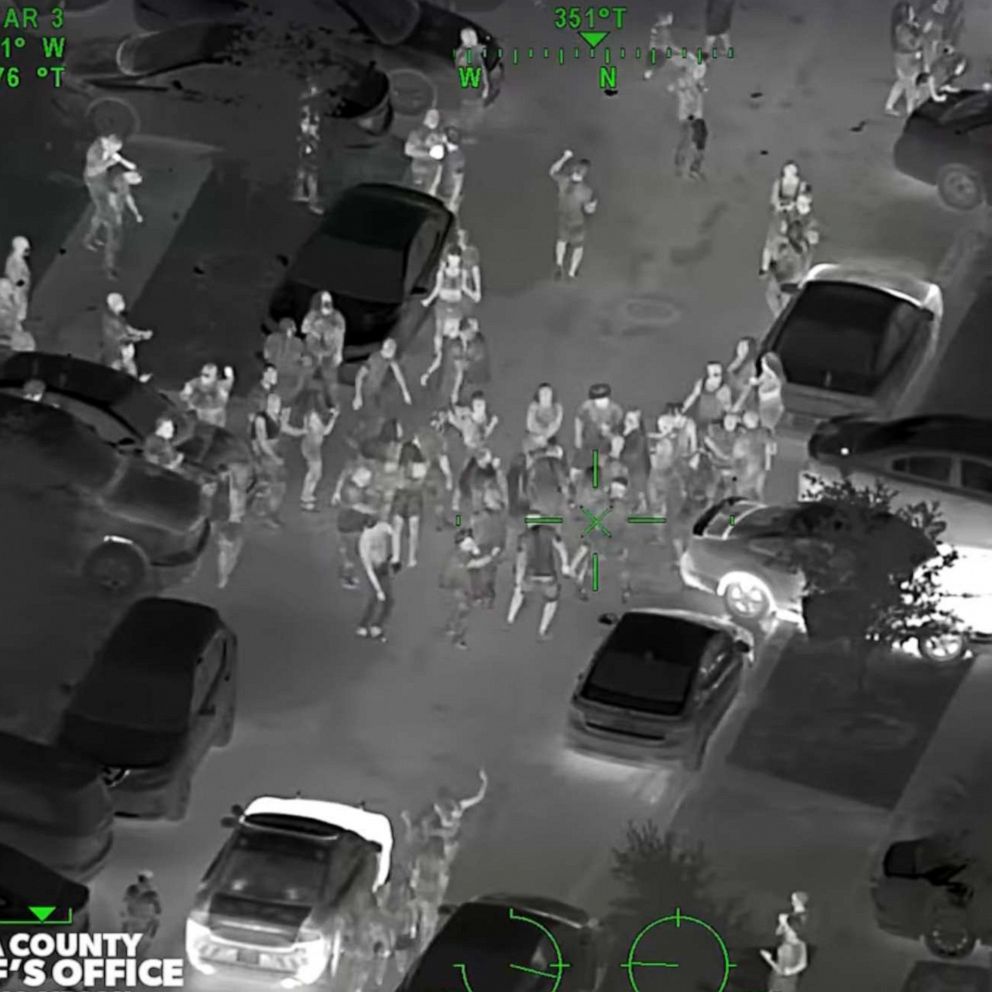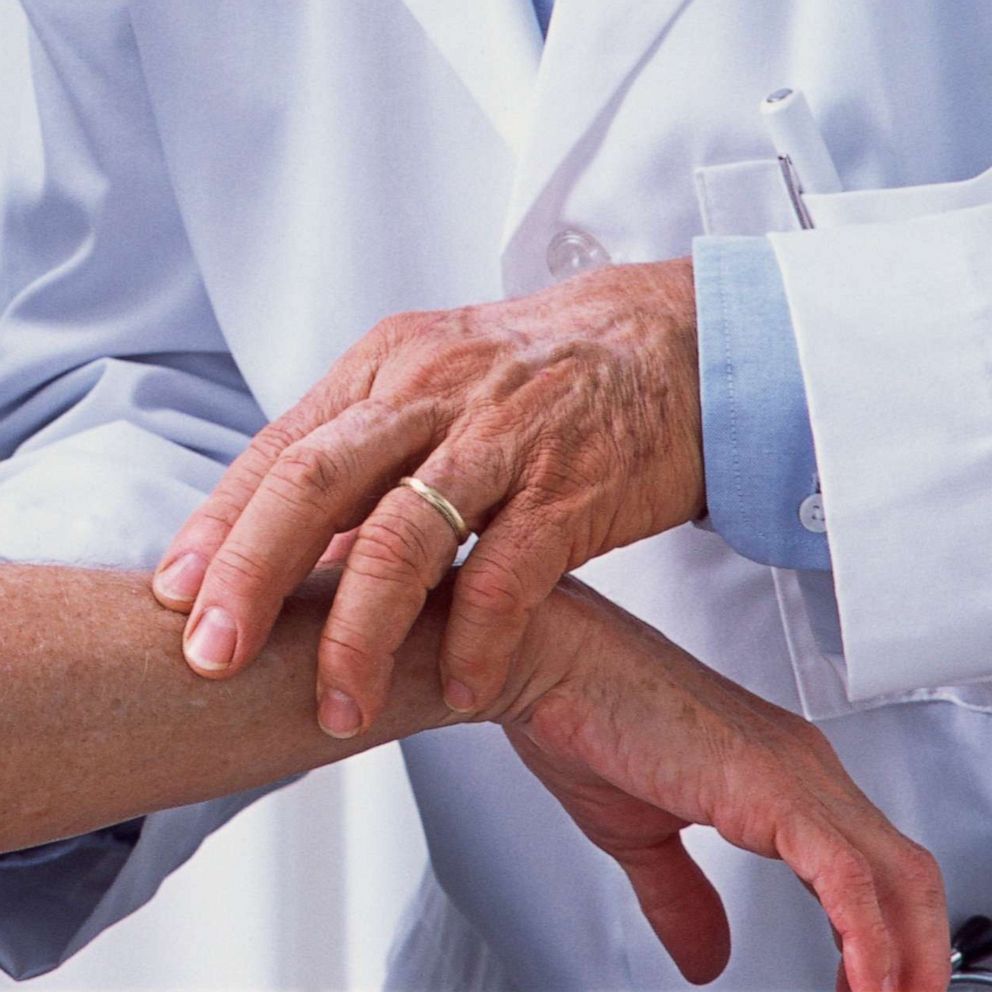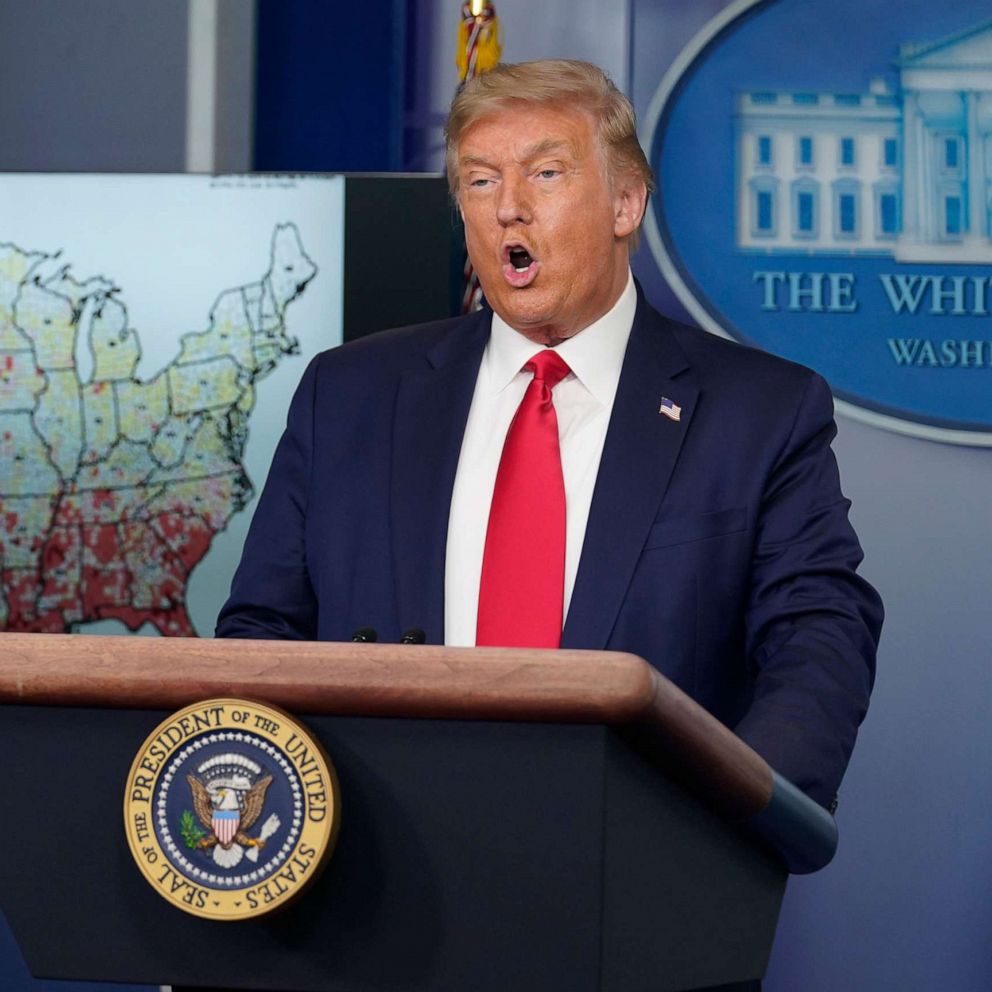Massachusetts, DC impose new travel restrictions
In the U.S., more than 145,000 people have died of COVID-19.
The novel coronavirus pandemic has now killed more than 638,000 people worldwide.
Over 15.6 million people across the globe have been diagnosed with COVID-19, the disease caused by the new respiratory virus, according to data compiled by the Center for Systems Science and Engineering at Johns Hopkins University. The actual numbers are believed to be much higher due to testing shortages, many unreported cases and suspicions that some governments are hiding or downplaying the scope of their nations' outbreaks.
The United States has become the worst-affected country, with more than 4.1 million diagnosed cases and at least 145,376 deaths.
Friday's headlines:
Here is how the news developed on Friday. All times Eastern.
10:43 p.m.: Chiefs player 1st to opt out of NFL season
The NFL has its first COVID-related holdout of the upcoming season. Kansas City Chiefs offensive lineman Laurent Duvernay-Tardif tweeted he will not play in the fall.
Duvernay-Tardif is an unusual case in the NFL: He's a doctor, having graduated from McGill University Faculty of Medicine in May 2018, and said he'd rather take care of patients than put people at risk as a player. The 6-foot-5, 321-pound lineman has spent the offseason treating people at a long-term care facility in his native Montreal.
"Given the worldwide sanitary crisis we are currently experiencing, the NFL and the NFLPA have agreed to significant health and safety protocols to protect the players," he wrote on Twitter. "There is no doubt in my mind the Chiefs' medical staff have put together a strong plan to minimize the health risks associated with COVID-19 but some risks will remain."
He said he will take the opt out clause included in the deal negotiation by the two sides.
The decision came just a couple hours after the NFL and NFL Players Association announced they had come to an agreement "that broadly resolves all outstanding issues relating to the opening of training camps and start of the 2020 season," in the words of Commissioner Roger Goodell.
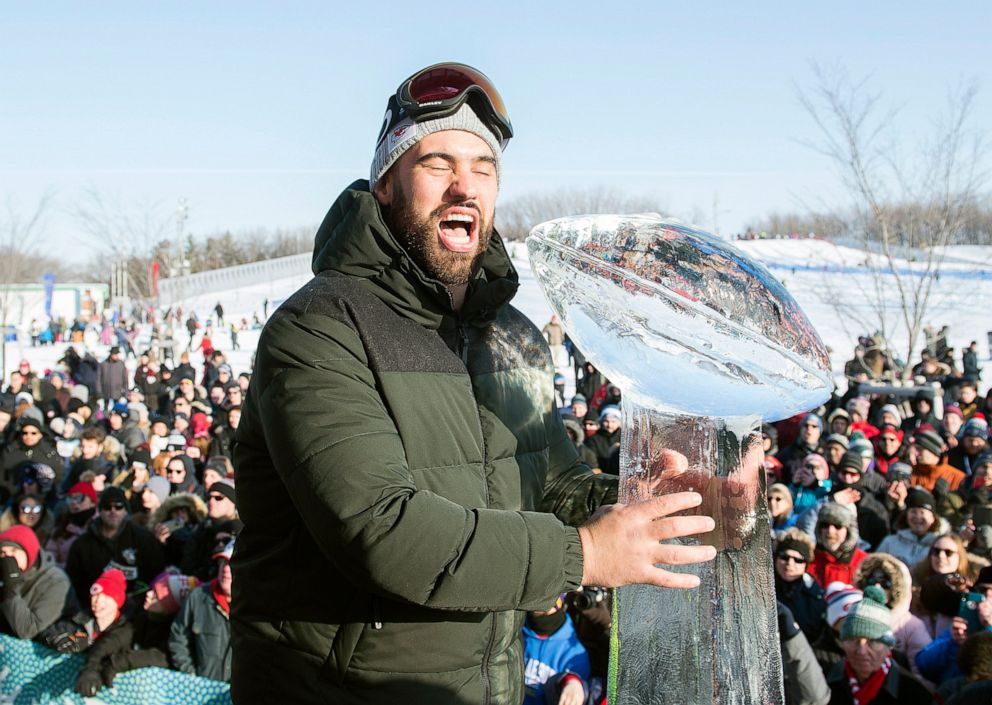
"Being at the frontline during this offseason has given me a different perspective on this pandemic and the stress it puts on individuals and our healthcare system," he added. "I cannot allow myself to potentially transmit the virus in our communities simply to play the sport that I love. If I am to take risks, I will do it caring for patients."
In May, Duvernay-Tardif talked to "Good Morning America" about working as an orderly at the long-term care facility -- administering medicine and spending time with patients three or four times a week.
"I want to be positive," he said in May of hoping to return to football this fall. "I want to play at a stadium in front of 80,000 people. The reality is I don't know what's going to happen. And we still don't know enough about the disease and how it's going to be in order to make a call."
Duvernay-Tardif started 14 games for the Chiefs last season, including all three postseason games as the team won the Super Bowl, 31-20, over San Francisco.
NFL lineman helping on the front lines of coronavirus pandemic
9:35 p.m.: New Orleans shuts down bars, prohibits takeout alcohol sales
New Orleans is no stranger to booze-filled parties, but residents will be sticking to Shirley Temples at home for awhile.
The city announced it was shutting down bars and stopping takeout alcohol sales from restaurants as well as COVID cases surge.
New Orleans Mayor LaToya Cantrell made the announcement at a press conference Friday afternoon, saying, "Since we moved to phase 2, the city has seen an unfavorable trend with the COVID-19 virus."
"As of tomorrow 6 a.m., all bars and restaurants in the city of New Orleans will be prohibited from selling takeout alcohol beverages. So what this essentially will mean is bars will be closed throughout Orleans Parish," Cantrell said.
There were 103 cases of coronavirus reported in the city on Friday and two deaths, according to the city. According to Cantrell, New Orleans has seen a doubling in daily case totals -- up from 50 to about 100 per day -- since the start of phase 2 on June 13.
7:04 p.m.: US tests highest number of people in single day ever
There were 930,068 people reported as being tested for coronavirus on Friday, the highest one-day total ever, according to The COVID Tracking Project.
The number appears, at least in part, due to California and Georgia releasing backlogs of tests, however.
Along with that single-day high, the second-highest number of people (75,193) tested positive for the virus.
There were also more than 1,000 deaths for the fourth straight day.
6:35 p.m.: Texas organizes 1,200 troops to fight COVID-19
Texas Gov. Greg Abbott announced the creation of Joint Task Force Texas, a new partnership between the Texas National Guard and active duty and reservists working on COVID-19 efforts in the state in a statement Friday. The move intends to make military efforts more efficient by bringing all troops under one unified command.
"More than 1,200 service members have come together from the Texas National Guard and the active and reserve components of the U.S. Army, U.S. Navy and U.S. Air Force to support hospitals in Houston, San Antonio, Del Rio, and the Rio Grande Valley," the statement read.
The announcement is not indicative of a change in troop levels, but rather of their organization -- disparate units working in Texas are being united.
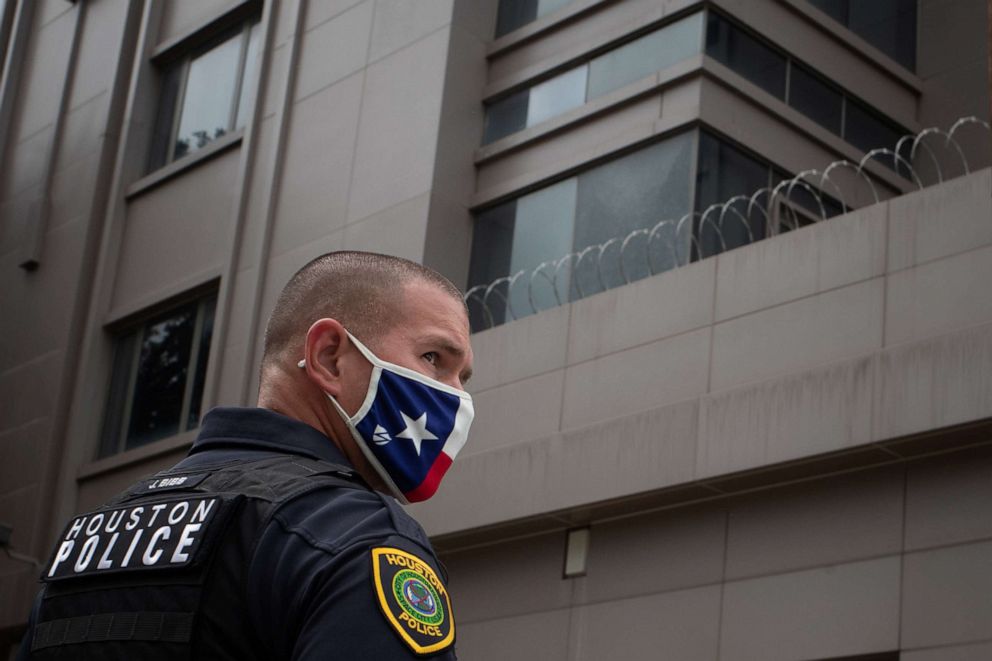
The change means Brig. Gen. Thomas Suelzer, director of the Joint Staff for the Texas Military Department, will now serve as a "dual-status commander." This means he will be in charge of the state's own National Guard troops as well as active duty and reserve personnel sent by U.S. Northern Command to serve in Texas hospitals.
Abbott said the new task force will improve efficiency at both the state and federal levels.
"This formal partnership will help ensure a more effective collaboration among state and federal resources, and allows us to better meet the needs of Texans across the state," he said.
4:45 p.m.: Fauci calls this fastest-ever vaccine launch
Dr. Anthony Fauci, director of the National Institute of Allergy and Infectious Diseases, calls the race for a COVID-19 vaccine "the fastest we've ever launched into a process of developing safe and effective vaccines for an important disease in history."
"We saved, at least a year or more by technological advances alone," he told Sal Khan, founder of the online courses nonprofit Khan Academy, on Friday.
Fauci said he predicts a vaccine could be distributed to some people by the beginning of 2021.
"My projection -- which is just cautious optimism, this is no guarantee -- is that by the end of the year, the beginning of 2021, we'll have a vaccine that we could start distributing to people," Fauci said. "So that's the timetable. It's extremely quick, but it's not sacrificing safety, nor is it sacrificing scientific integrity. It's just doing things more quickly by essentially going to the next step and taking a financial risk, before you actually get the answer to the previous step."
3:54 p.m.: Mississippi limits gatherings, alcohol sales to curb spread among people in their 20s
Mississippi Gov. Tate Reeves on Friday said he has signed a new executive order limiting gatherings and alcohol sales to curb the spread of coronavirus among people in their 20s.
"We've seen a tremendous amount of spread in young people. By far, the group driving these high numbers is people in their 20's," Reeves said Friday.
The new order limits gatherings to 10 people indoors and 20 people outdoors.
Bars can only sell alcohol to seated customers, the new order says, and no alcohol can be sold at restaurants or bars between 11 p.m. and 7 a.m.
Reeves also said six more counties have been identified as hotspots. Calhoun, Holmes, Lamar, Montgomery, Winston, and Yalobusha Counties are now added to a county-specific executive order which has tougher social distancing measures.
3:35 p.m.: California reports new record high daily death toll
Hard-hit California reported a new record high daily death toll on Friday, with 159 fatalities.
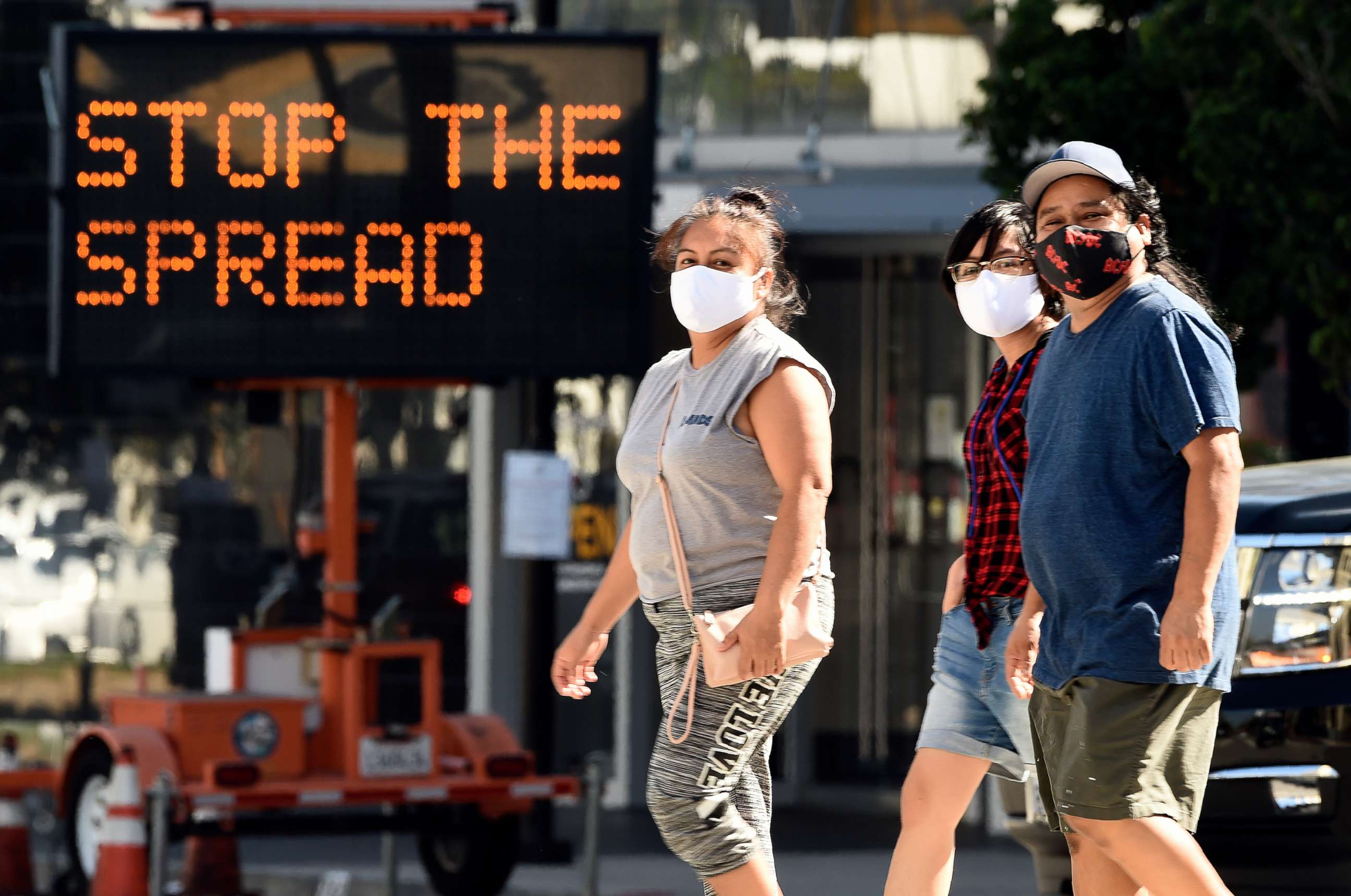
California saw a 8.5% increase in hospitalizations and an 10.17% jump in ICU admissions over the last two weeks.
Thirty-four of California's 58 counties are now on the state's "monitoring list." The residents in these 34 counties account for "well north of 90% of the population," Gov. Gavin Newsom said Friday.
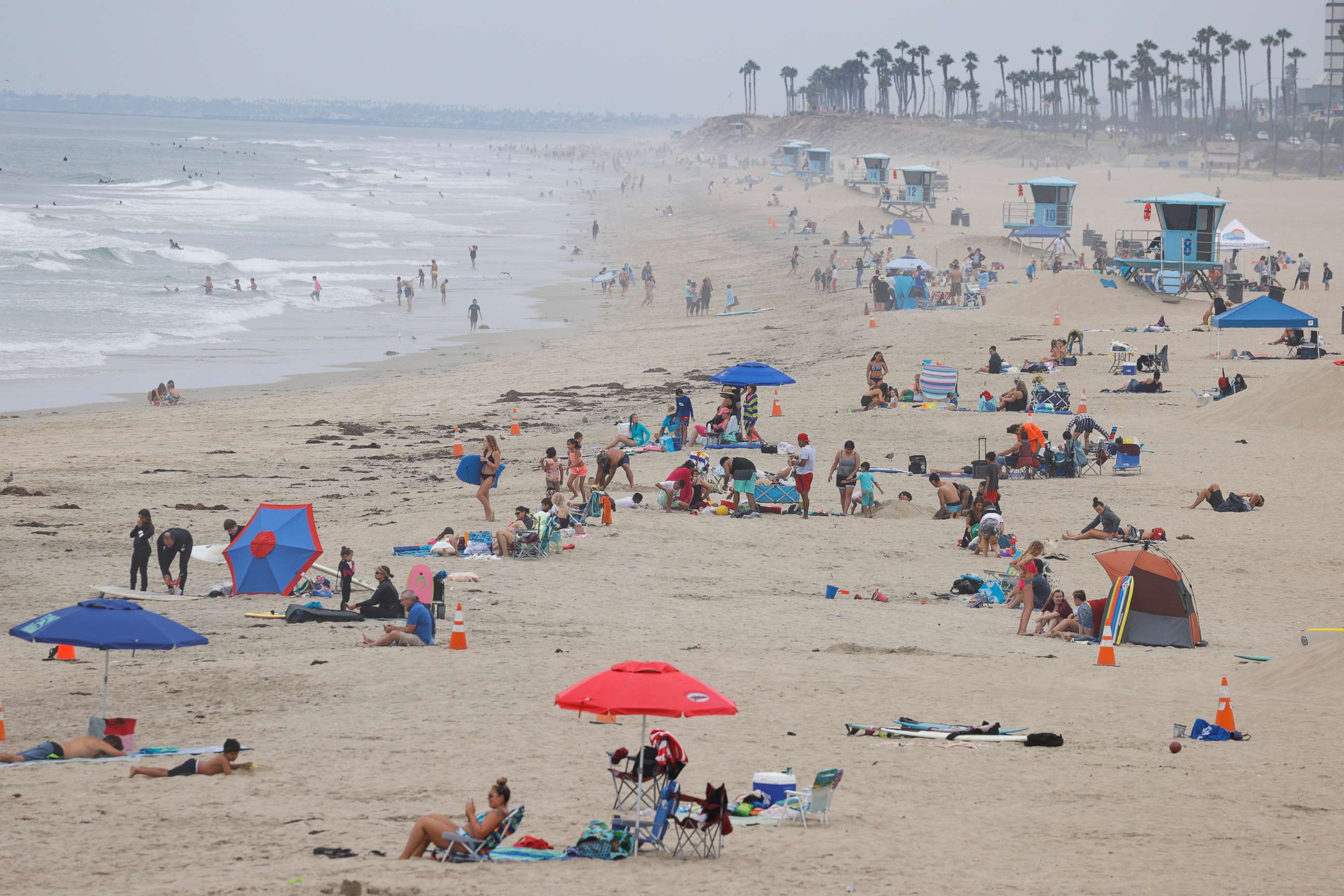
California now has the most coronavirus cases than any state in the U.S. California has over 430,000 cases while New York has over 410,000 cases, according to Johns Hopkins data.
1:35 p.m.: Houston delays start of school year
Harris County, Texas, which includes Houston, is delaying the start of the year for public school students, Harris County Judge Lina Hidalgo and Houston Mayor Sylvester Turner said Friday.
Schools will not start until at least Sept. 8. Hidalgo said that date is "probably too soon, but we're going to aim for it."
The Houston area is reporting a slight decline in ICU admissions and hospitalizations, but is still seeing a huge increase in cases.
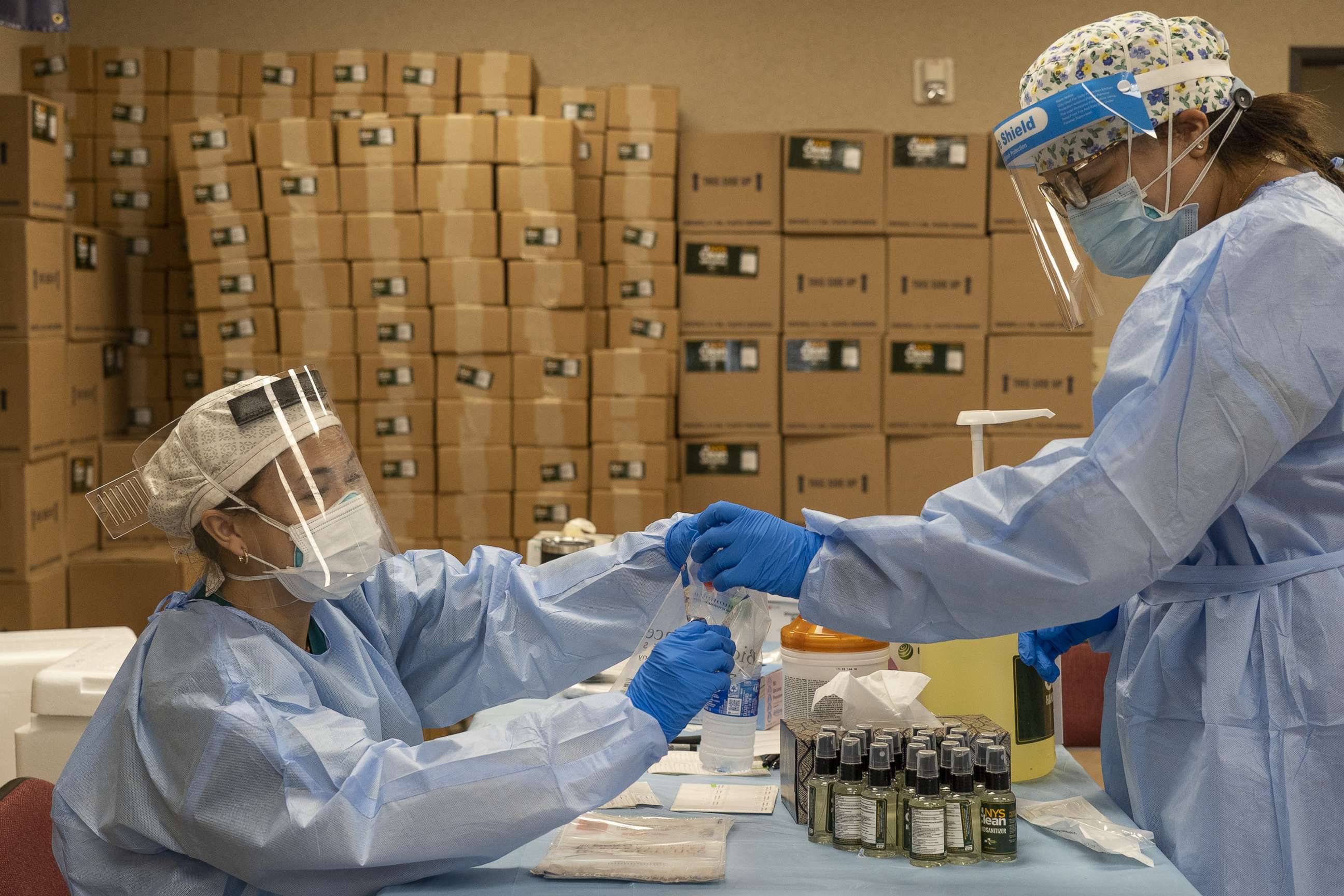
Hidalgo said there are now 100 more cases per day than on July 13.
1:04 p.m.: Toronto Blue Jays to play in Buffalo
The Toronto Blue Jays, displaced from their home stadium due to the pandemic, will play the greater part of its home season at Sahlen Field in Buffalo, New York, the team announced Friday.
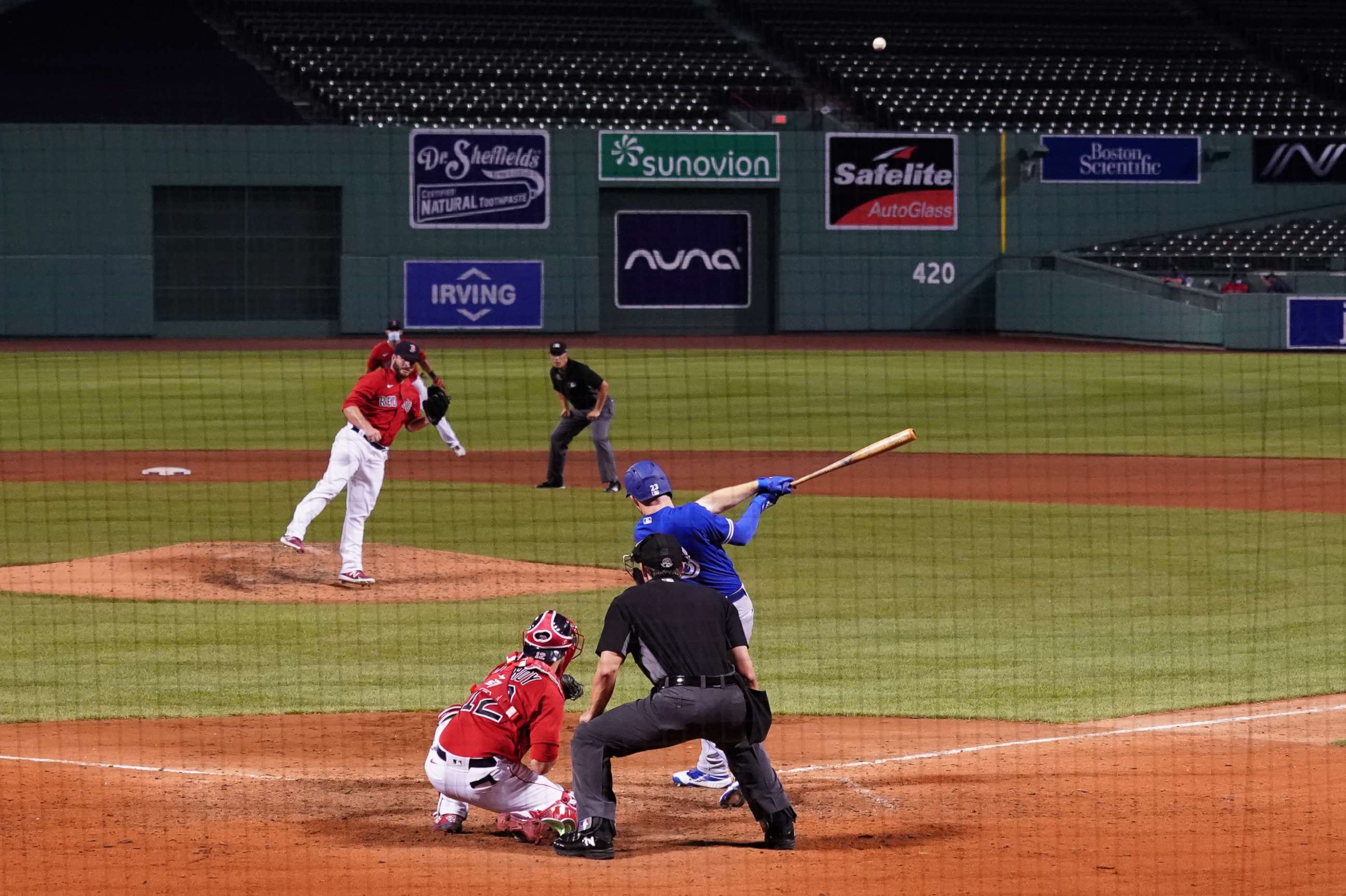
The Canadian government denied the Blue Jay's request to play its games in Toronto because of concerns over teams crossing the border.
"This process has no doubt tested our team's resilience, but our players and staff refuse to make excuses -- we are determined to take the field on Opening Day today, and for the coming months, with the same intensity and competitiveness that our fans expect," Toronto Blue Jays president and CEO Mark Shapiro said in statement.
The Blue Jays' opening game will be Friday night against the Tampa Bay Rays.
12:45 p.m.: DC, Massachusetts impose new travel restrictions
Beginning Aug. 1, all Massachusetts visitors, residents reentering the state and students returning to college in Massachusetts must fill out a travel form and quarantine for two weeks, Gov. Charlie Baker said Friday.
The exceptions are people arriving from one of the eight states designated as a COVID-19 lower-risk state or if the traveler can submit a negative COVID-19 test result that was administered no more than three days before arriving in Massachusetts.
If your test result hasn't been received when you arrive in Massachusetts, you must quarantine until getting the negative result, Baker said. Those who do not comply could be fined $500 per day.
The eight exempt states considered lower risk are New York, New Jersey, Connecticut, Maine, Rhode Island, Vermont, New Hampshire and Hawaii.
In Washington, D.C., Muriel Bowser said Friday she's signing an order that will require travelers from coronavirus hot spots to quarantine for two weeks when arriving in the district.
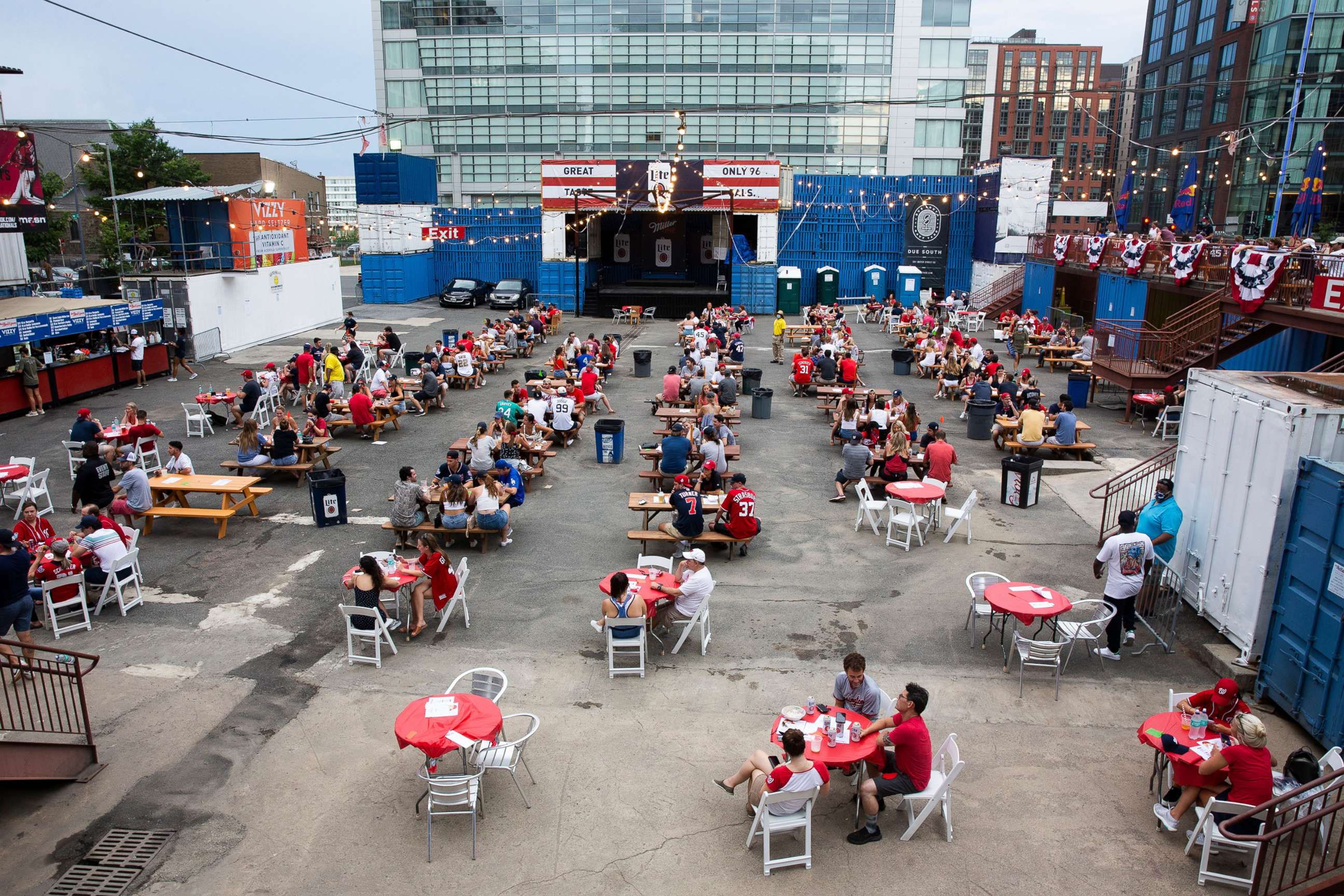
The order, which takes effect July 27, will not apply to Maryland and Virginia.
Earlier this week, Bowser said masks would be required in D.C. for people ages 3 and older. Violators could be fined up to $1,000.
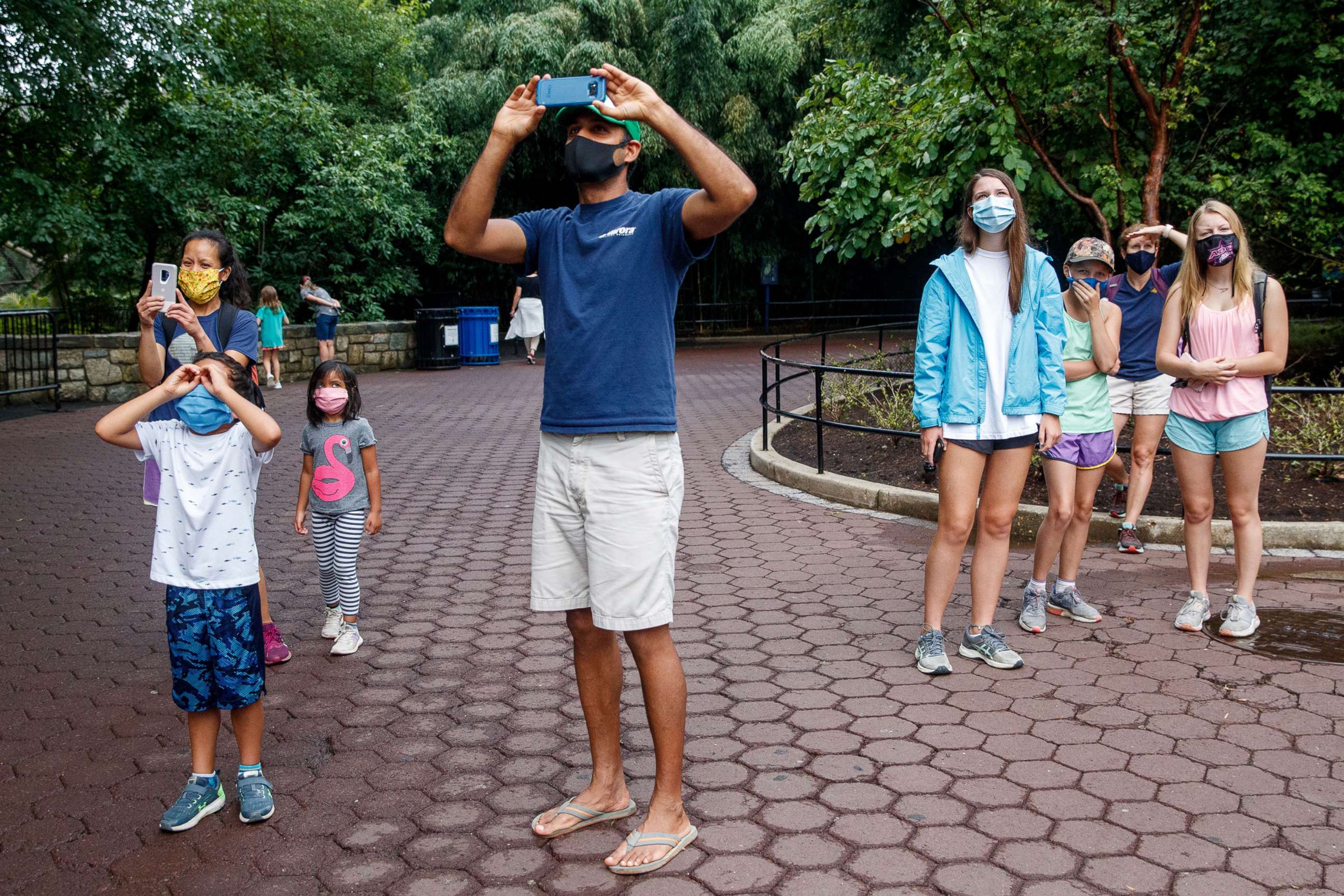
12 p.m.: Cases rising in Maryland, Virginia after falling in June
In Maryland and Virginia, COVID-19 cases have been steadily on the rise the last few weeks after case numbers fell in June.
In Maryland, cases rose by 930 in the last 24 hours -- the highest daily increase since the end of May, the state's Department of Health said.
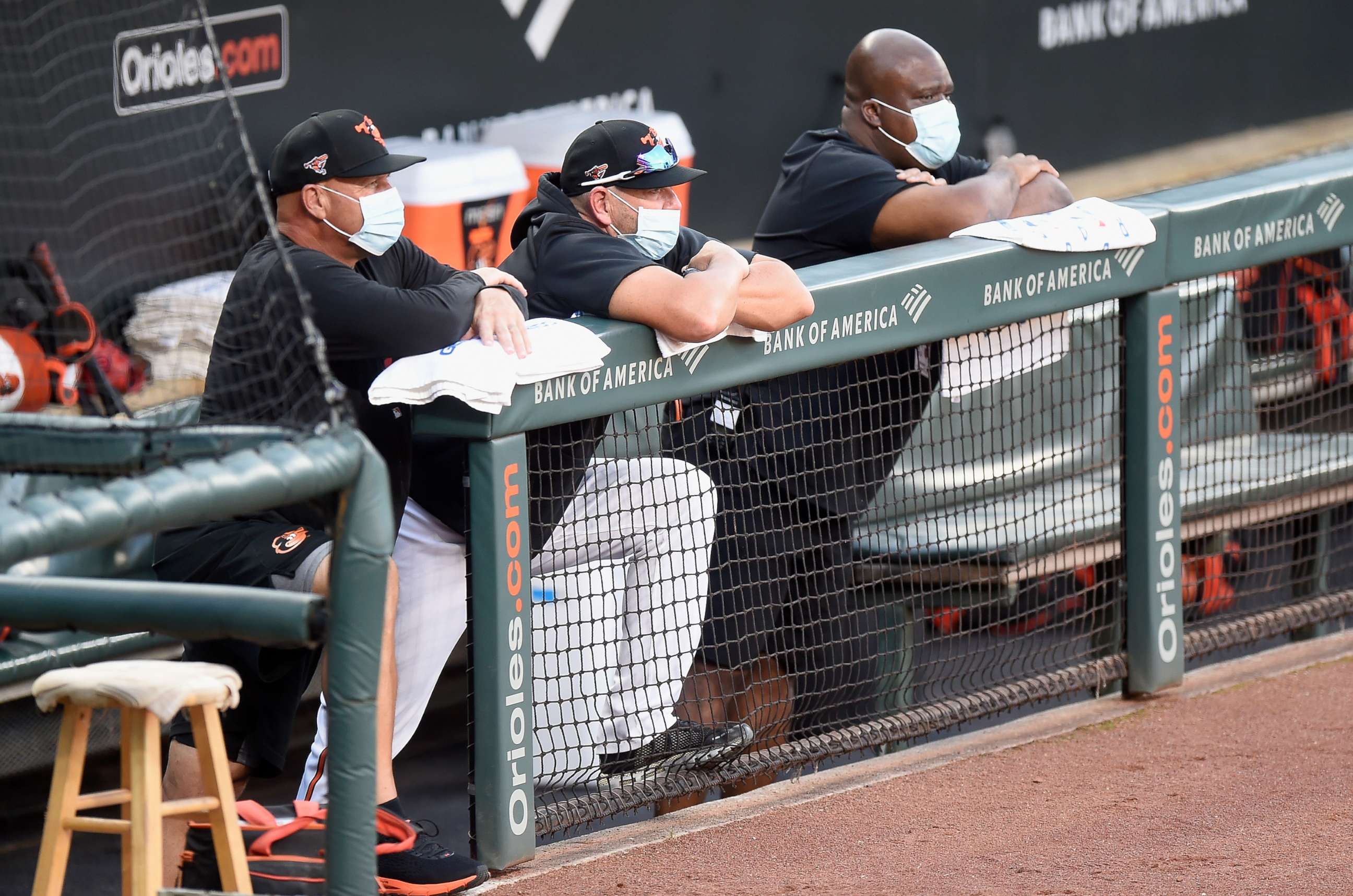
According to The Baltimore Sun, this is Maryland's 11th straight day of more than 500 new daily COVID-19 cases.
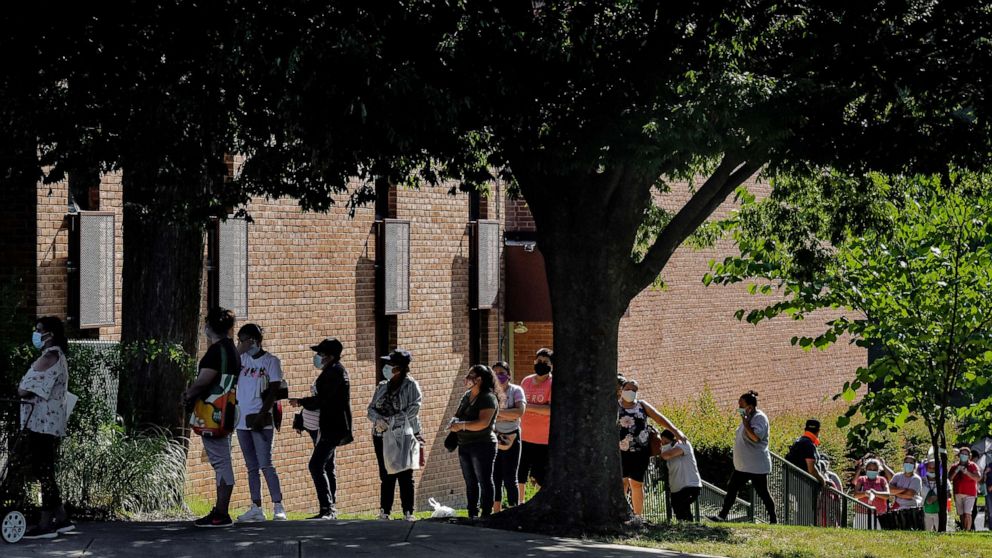
In neighboring Virginia, after a major decline in June, cases this week rose by about 800 to 1,000 per day.
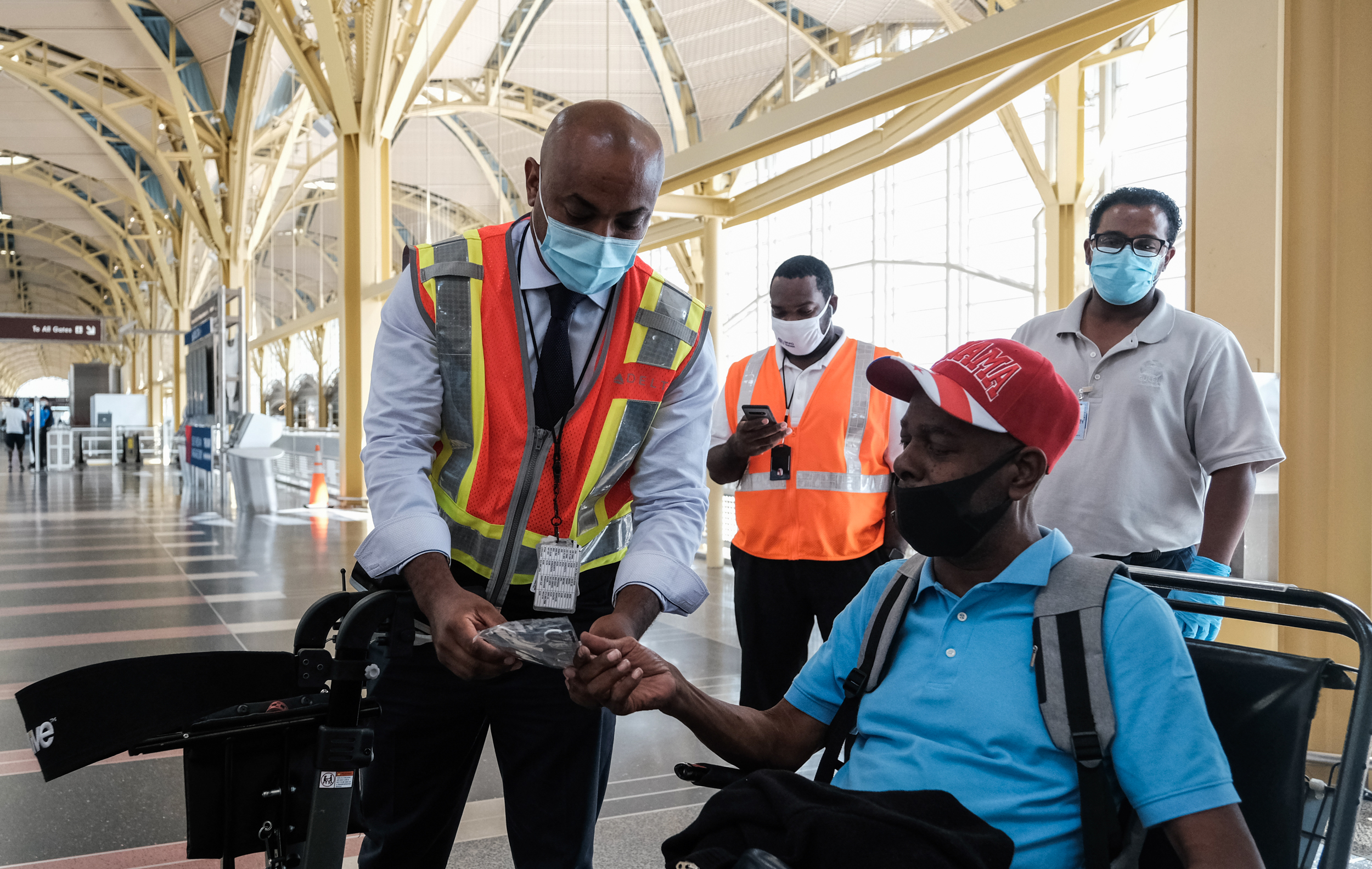
11 a.m.: 16% of Florida ICU beds remain available
Just 16.1% of Florida's adult intensive care unit beds were available as of Friday morning, according to Florida's Agency for Healthcare Administration.
In Miami-Dade County, just 10.85% of ICU beds were open, the agency said.
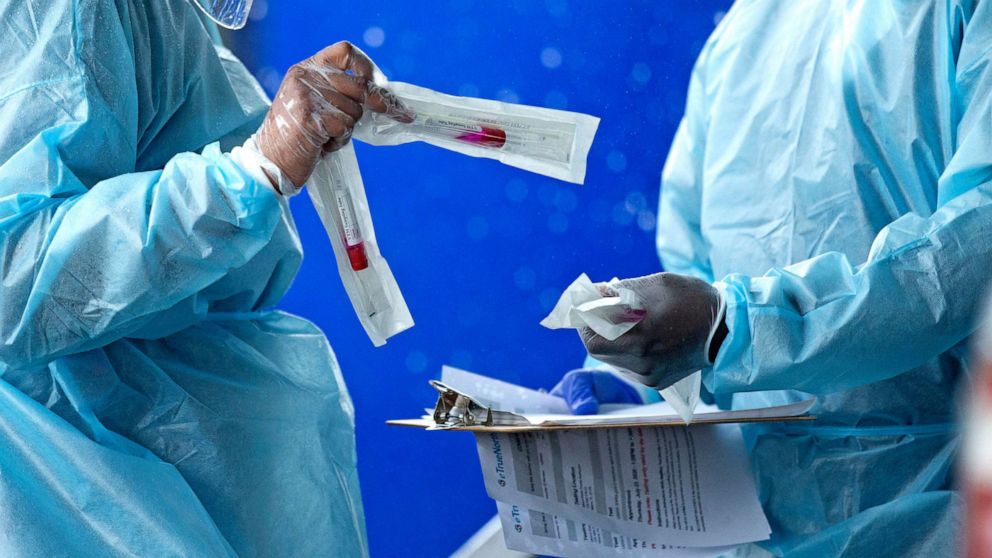
Those numbers will fluctuate throughout the day as hospitals and medical centers provide updates.
At least 5,767 people in Florida have died from COVID-19. Over 402,000 people in the state have been diagnosed, putting the state third in number of cases, behind California and New York.
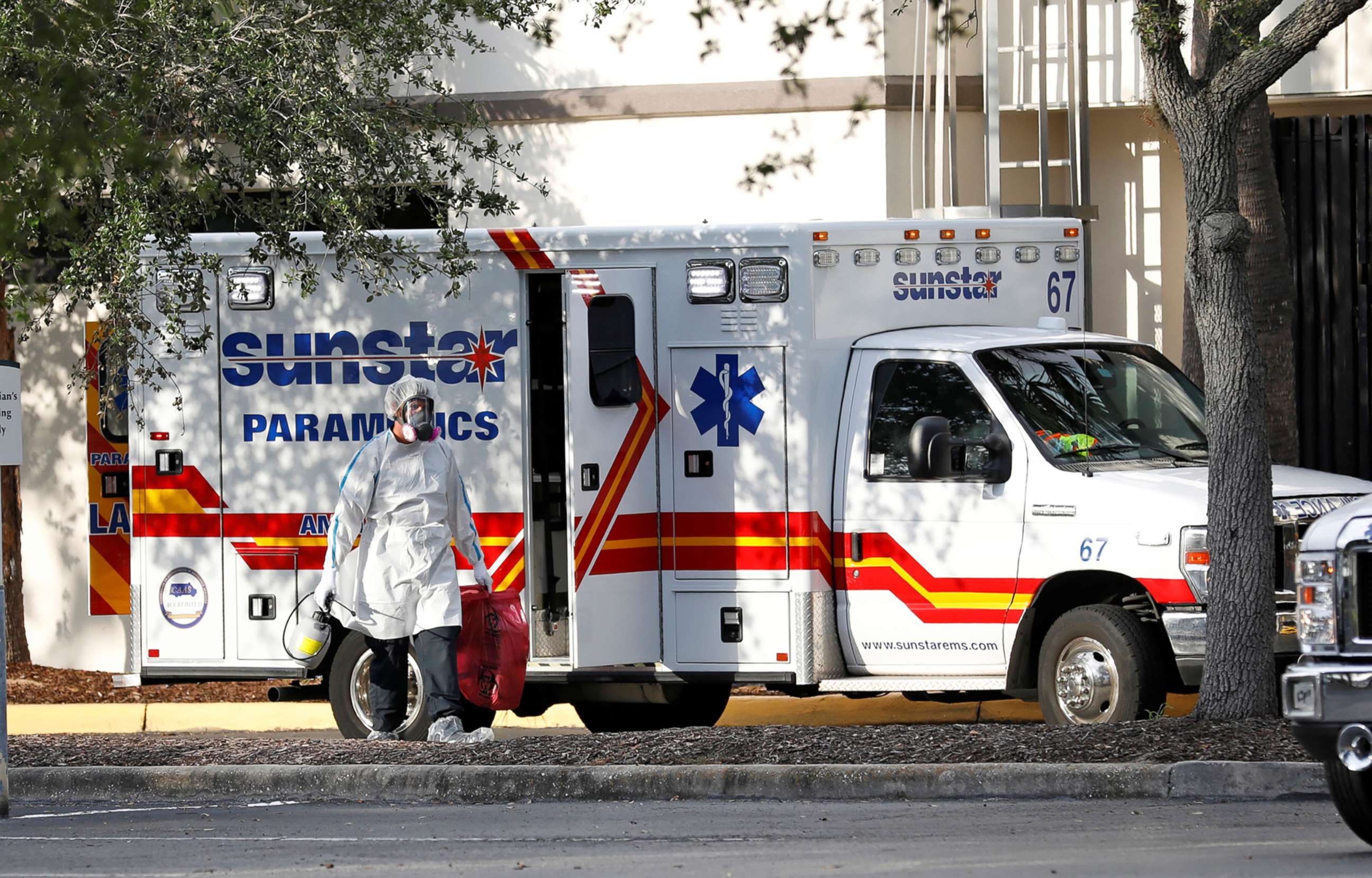
10 a.m.: About 20 cases linked to teens' NJ house party
About 20 teenagers diagnosed with COVID-19 have been linked to a July 11 house party in Middletown, New Jersey, reported ABC New York station WABC.
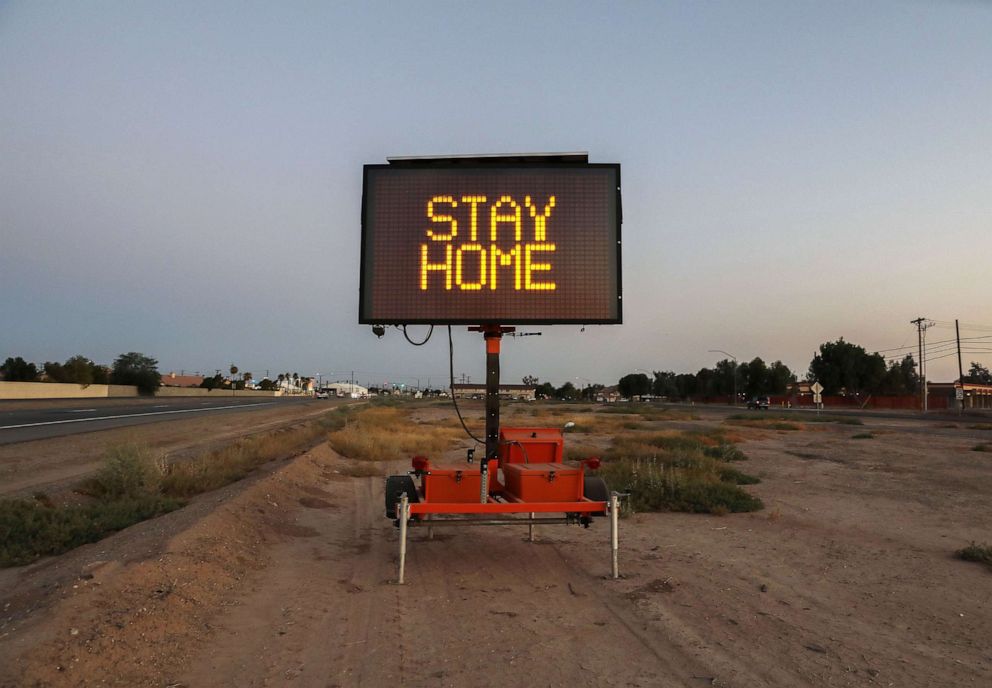
The diagnosed party-goers were between the ages of 15 and 19. Some of them are not cooperating with contact tracers, WABC reported.
"If you think your child may have attended such a party or participates in sports or any other group activity that may have included anyone potentially exposed, please ask them to self-quarantine for 14 days to monitor for signs and symptoms," the Middletown health department said.
9:15 a.m.: Arizona patients taken to NM hospitals due to bed, staffing shortages
An internal FEMA memo obtained by ABC News details new COVID-19 problems across the U.S.
In Arizona, COVID-19 patients are being transferred to New Mexico hospitals because of staffing shortages and a lack of beds, according to the memo.
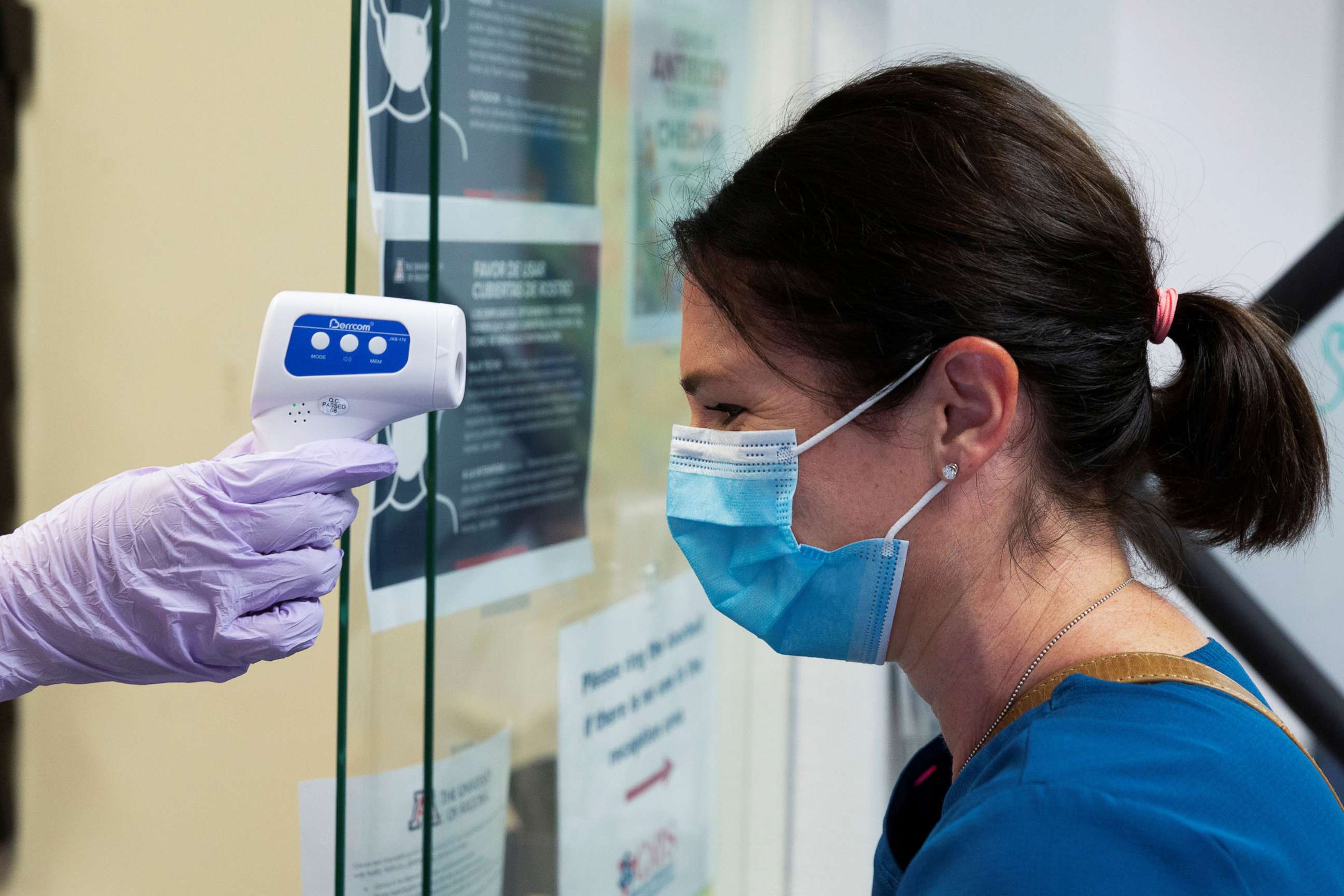
In Georgia, where last week saw a record single-day case total, 85% of critical care beds are in use across the state, the memo said.
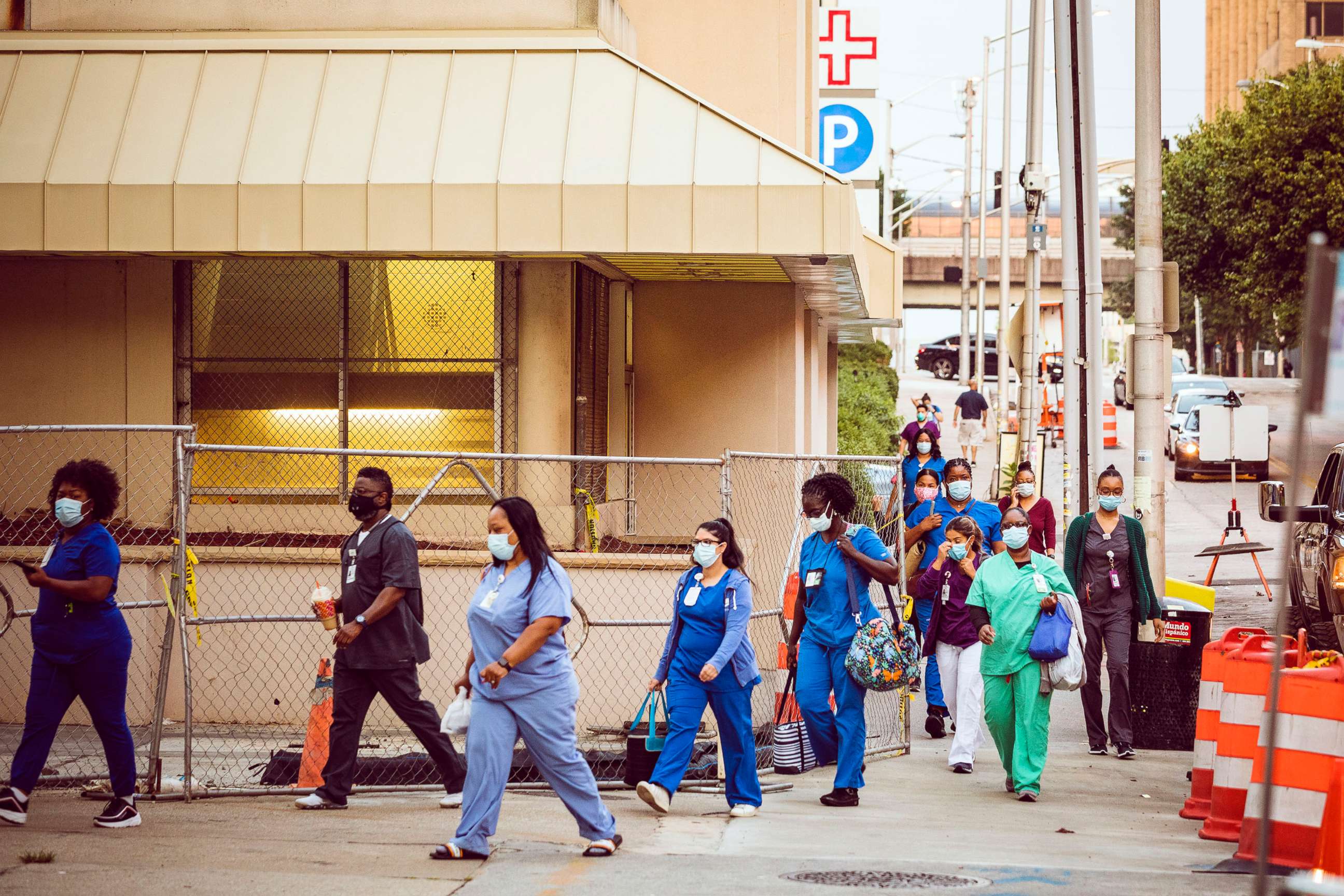
And in Arkansas, the Hot Springs area reported a 198.1% increase in new cases this past week, with 145 new cases, the memo said. Most new cases are in the Ouachita River Unit prison where there are hundreds of cases among staff and inmates.
8:30 a.m.: Controlling the virus takes 'an all-of-government approach,' WHO says
While the U.S. remains the nation with the most coronavirus cases and fatalities, some countries "have been able to control the virus," said Dr. Maria VanKerkhove, the World Health Organization's lead expert on COVID-19.
"We do see signs of hope. In some countries they have been able to control the virus. This virus is controllable," VanKerkhove told "Good Morning America" Friday. "Even countries that are really overwhelmed right now can turn things around."
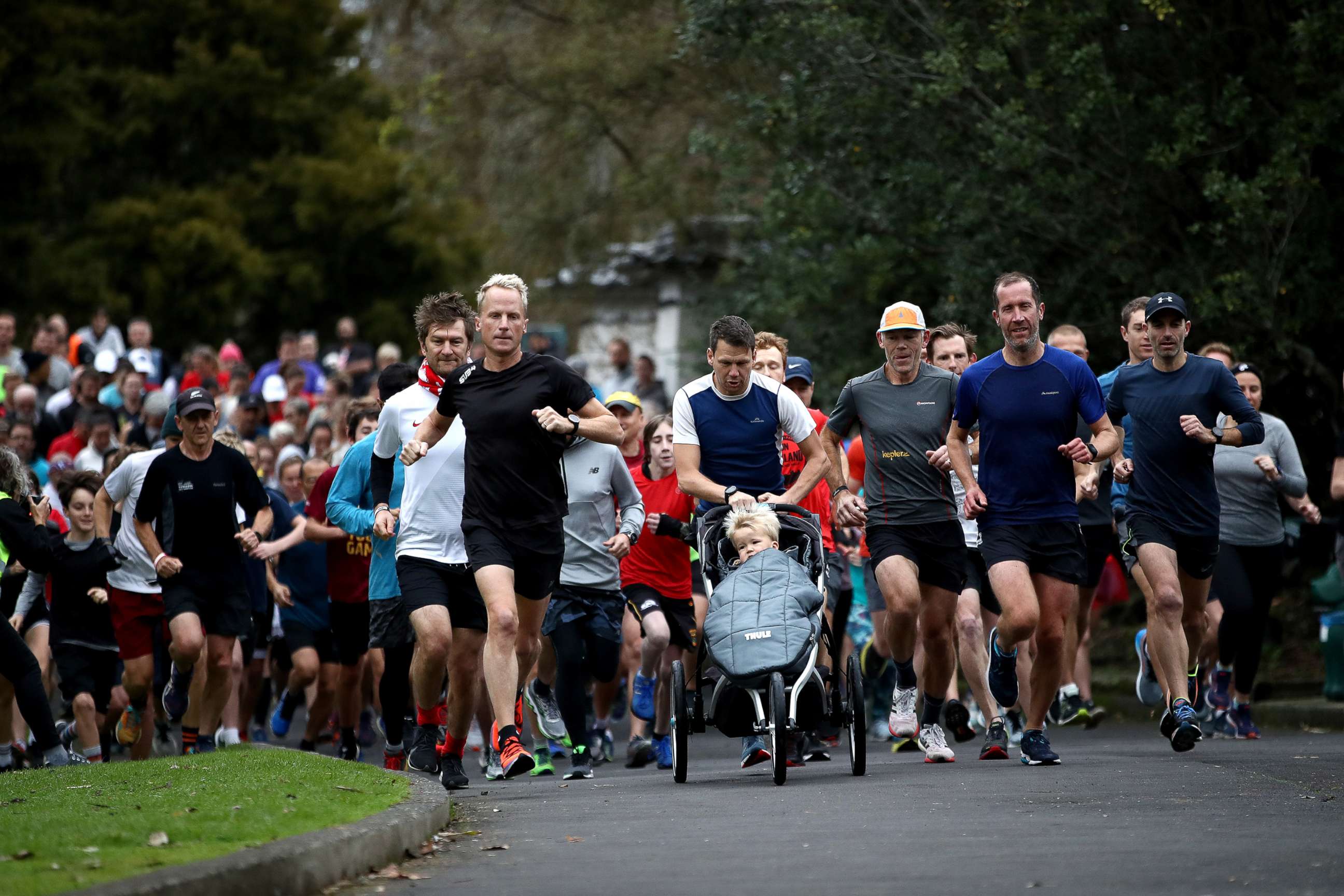
No matter if a country is wealthy or poor, urban or rural, VanKerkhove said control is due to "quick isolation, identification, care of patients."
"This is not just a health sector response. This is an all-of-government approach -- meaning that every sector needs to be involved," she said.
VanKerkhove also stressed the importance of "empowering individuals so that they know what they can do to prevent themselves from getting infected" -- like social distancing, hand washing, wearing masks and being vigilant.
5:40 a.m.: US COVID-19 death tally 18.7% higher than last week
The deadly impact of the novel coronavirus continues to show no signs of slowing down in the U.S. In the past week, the national death toll grew 18.7%, according to an internal Federal Emergency Management Agency Memo obtained by ABC News. The U.S. COVID-19 death toll, as of Friday morning, now stands at 144,305.
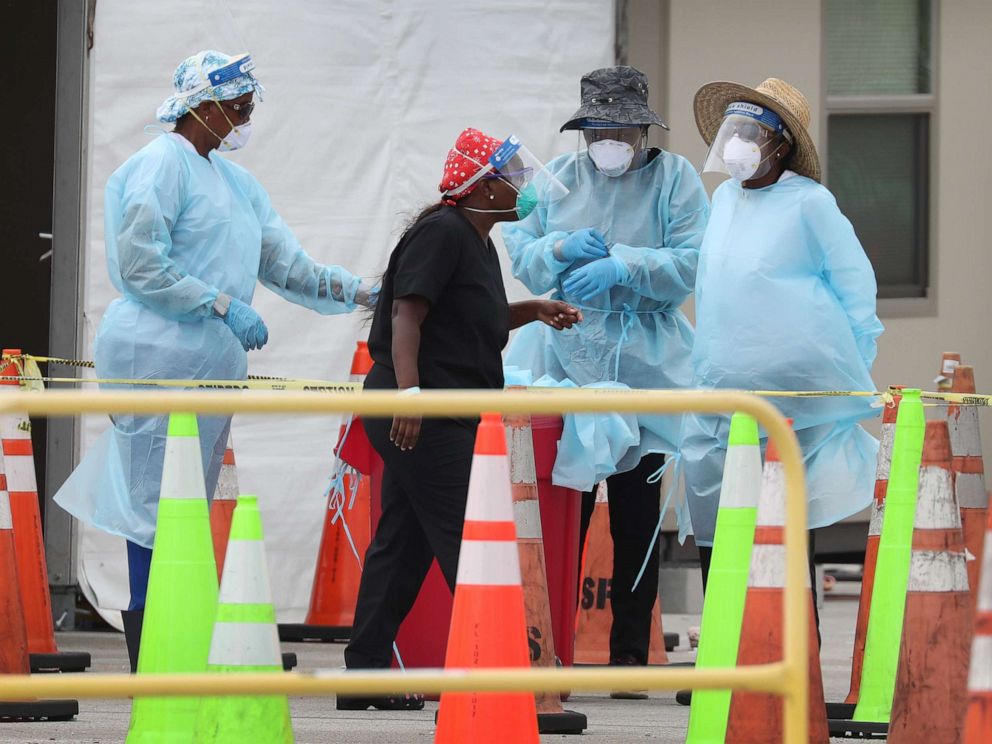
The U.S. reported 1,039 new coronavirus deaths on Thursday, according to the COVID Tracking Project.
A large portion of the new deaths are in the South, where the number of cases and hospitalizations have been on the rise for weeks. The staggering number of cases also means hospital beds are in short supply for several states and cities.
In Alabama, the state is seeing many health care facilities reach capacity as staffing shortages are increasing strains on the system, according to the FEMA memo. COVID-19 patients in Arizona are being transferred to New Mexico because of a lack of beds.
Some hospitals in Louisiana are also at capacity. Facilities in Lake Charles and Lafayette are transferring patients to New Orleans for treatment, the memo said. And in Texas, Hidalgo County for weeks has warned its hospitals are at capacity. The crematorium in the county, according to the FEMA memo, has a two-week waitlist. It is now relying on refrigerated morgue trucks.
Meanwhile, Georgia and Kentucky saw their single-day biggest case totals in a week that also saw California (157), Florida (173), and Texas (197) all report record daily death tolls.
The Centers for Disease Control and Prevention updated its U.S. coronavirus death toll projection Thursday, saying it now expects 175,000 deaths by Aug. 15.
What to know about coronavirus:
- How it started and how to protect yourself: Coronavirus explained
- What to do if you have symptoms: Coronavirus symptoms
- Tracking the spread in the U.S. and worldwide: Coronavirus map
ABC News' Matthew Seyler, Dee Carden, Matt Fuhrman, Matt Foster, Robert Gehlen, Josh Hoyos, Josh Margolin, Arielle Mitropoulos and Scott Withers contributed to this report.
